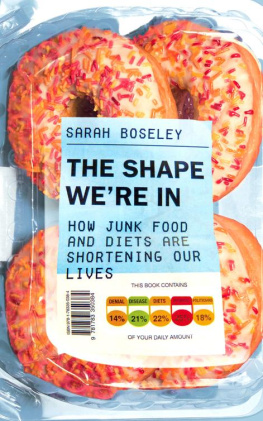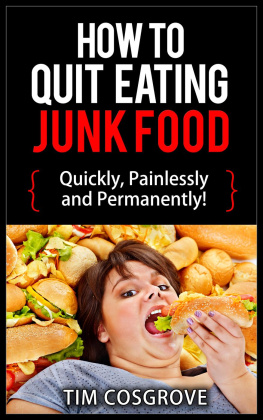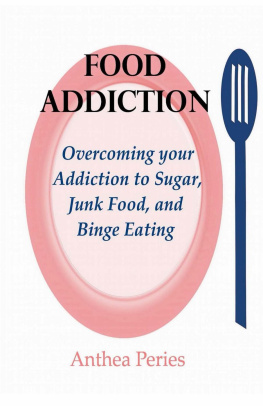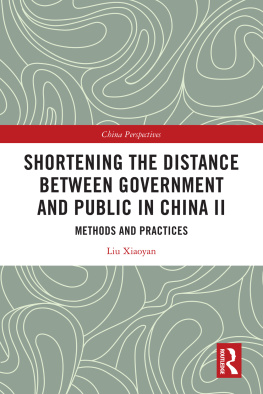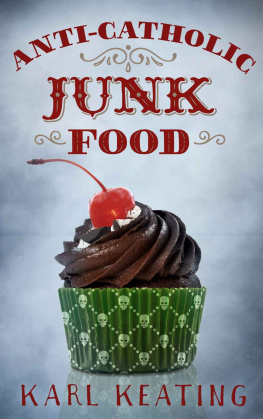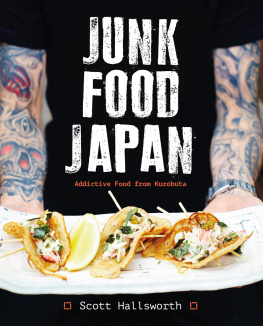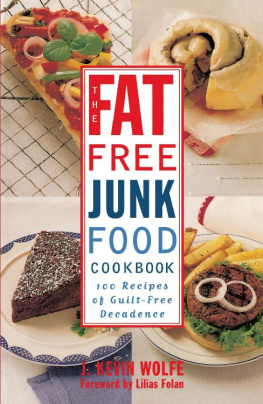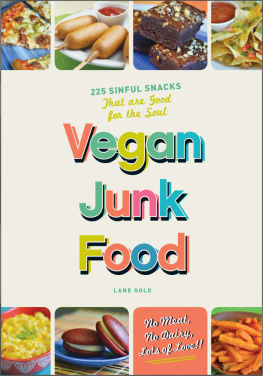Boseley - The shape we’re in : how junk food and diets are shortening our lives
Here you can read online Boseley - The shape we’re in : how junk food and diets are shortening our lives full text of the book (entire story) in english for free. Download pdf and epub, get meaning, cover and reviews about this ebook. year: 2014, publisher: Guardian Books, genre: Politics. Description of the work, (preface) as well as reviews are available. Best literature library LitArk.com created for fans of good reading and offers a wide selection of genres:
Romance novel
Science fiction
Adventure
Detective
Science
History
Home and family
Prose
Art
Politics
Computer
Non-fiction
Religion
Business
Children
Humor
Choose a favorite category and find really read worthwhile books. Enjoy immersion in the world of imagination, feel the emotions of the characters or learn something new for yourself, make an fascinating discovery.
The shape we’re in : how junk food and diets are shortening our lives: summary, description and annotation
We offer to read an annotation, description, summary or preface (depends on what the author of the book "The shape we’re in : how junk food and diets are shortening our lives" wrote himself). If you haven't found the necessary information about the book — write in the comments, we will try to find it.
Boseley: author's other books
Who wrote The shape we’re in : how junk food and diets are shortening our lives? Find out the surname, the name of the author of the book and a list of all author's works by series.
The shape we’re in : how junk food and diets are shortening our lives — read online for free the complete book (whole text) full work
Below is the text of the book, divided by pages. System saving the place of the last page read, allows you to conveniently read the book "The shape we’re in : how junk food and diets are shortening our lives" online for free, without having to search again every time where you left off. Put a bookmark, and you can go to the page where you finished reading at any time.
Font size:
Interval:
Bookmark:

To my mum and dad, who grew up
in a very different world from this one.
I went into a McDonalds yesterday and said, Id like some fries. The girl at the counter said, Would you like some fries with that?
Jay Leno
I did not really understand why obesity was such a problem until a doctor on the front line, working in Mississippi in the epicentre of the United States epidemic, showed me some MRI scans of the insides of seriously overweight peoples bodies. It was as if fat had been poured into all the gaps and cracks between the organs, a great bulging mass of white on the image. The liver was swollen to a huge size, but the kidneys had been squashed small by the strangulating mass of fat. The diaphragm and lungs had been pushed up into the top of the body and the heart was under pressure. Small surprise, he remarked, if people are breathless.
It was like something from a sci-fi film.
If people knew what this fat was doing to the inside of their bodies, they would surely feel differently about their weight and see it as a more urgent problem than they mostly do. Its not about how you look. Its about what is happening to your insides. We need to think of it like cancer: you cant see what its doing, but its doing you real harm.
In May 2012, fire engines, police and an ambulance were called to the family home of a teenager called Georgia Davis in Aberdare, south Wales, in order to get her out of it. Nobody could dream up a more horrifying and humiliating nightmare for a girl of her age. A team of over 40 people was involved in demolishing an upstairs wall of the semi-detached house and constructing a wooden bridge to get a specially reinforced stretcher into her bedroom. Georgia weighed 400kg (63 stone), said some tabloid newspaper reports, while others said 350kg (56 stone). Nobody really knew she was too heavy at that point to get on the scales. Her rescuers had the delicacy to put up tarpaulins to shield her from the camera lenses as they extracted her through a 10-foot square hole in the brickwork and took her to hospital. She was covered by a sheet, because she could no longer get into any of her clothes.
The 19-year-old was morbidly obese and her organs were failing. Her mother, Lesley, had called the ambulance because she could no longer stand up. For some months she had not moved from her bedroom, where she spent her days on her laptop and watching TV. Eventually, like Alice in Wonderland inside the little house after drinking something she shouldnt, she grew too big to get out of the door.
Unfortunately this was not one of Lewis Carrolls charming Victorian fantasies. It is a true and desperate story of our modern age. Georgia is the extreme marker of a massive problem that has its roots in the way we live today and that affects all of us. Two-thirds of us are overweight. A quarter of us are obese and in real danger of damaging our health and dying prematurely. But we are in denial. Obesity looks like Georgia, we think. It doesnt look like us.
Obesity is a life-shortening condition. Life expectancy, which has risen steadily since records began, may for the first time be about to fall. Moderate obesity cuts life expectancy by two to four years and severe obesity could wipe an entire decade off your life, said the Lancet in 2009. The costs to health services and to the worlds economies of vast numbers of people becoming sick and unable to work are already huge and increasing. The National Heath Service is spending 5 billion a year treating heart attacks, strokes, diabetes, cancers, liver failure, hip and knee joint problems and other consequences of obesity, and the bill is expected to reach 15 billion within a few decades. Every country has the same soaring costs.
But like an iceberg, only the tip of the problem is yet showing. Obesity began to take off in the 1980s. The full health impact is not yet apparent. The National Audit Office estimated that there were over 30,000 premature deaths and 18 million days of sickness absence caused by obesity in England per year back in 1998. Those numbers must have soared, but no further official count has been done.
With such costs and casualties, you might think we would be on a war-footing with the issue by now. But the reluctance of politicians, the affluent and those who have never had a weight issue to believe that it is about anything other than individual greed, sloth and personal responsibility means that obesity and its health and financial consequences continue to inflict more and more damage. There are a few sporadic initiatives, but no military-scale strategy to reverse it and no general in charge of the campaign.
Indeed, nobody wants ownership of the problem. The humiliation of Georgia tells us much about the reasons why. Most people today are overweight but, they say to themselves, they have nothing whatsoever in common with her. They believe a spell on a diet or a few months of hard work at the gym will sort out the surplus pounds and yet, somehow, it doesnt. Magazines and newspapers still feature thin women and muscled men as the norm, even though people who look like that are very much a minority. Fatness has become so ordinary that we cease to notice it in the people we meet and dont think of it as an issue for ourselves. When we do, we are divided about the causes and the solutions and those divisions are exploited by those who can make money out of our appetite, inactivity and eventual panicked attempts to lose weight. Meanwhile we turn our face away from extreme cases like Georgias. If she is what obesity looks like, then the rest of us dont have a problem.
Georgias troubles were served up as entertainment in the tabloids, which paid her for the story, as if she were part of a freak show. In photographs (and there are many), her face, above the mountain of flesh, is curiously passive. The expressionless look reminds me of a painting in the Wellcome Collection of a 36-year-old man called Daniel Lambert, painted in the early 1800s. He weighed 320kg (50 stone) and exhibited himself to the curious in an apartment in Piccadilly, London, for a shilling a time. Poor Georgia is not Alice, in a bit of a fix and unable to straighten her arm without putting it out of the window. She is the Elephant Man, whose appearance evokes pity and horror in this case, mixed with condemnation. The newspapers offer Georgias story as a sort of modern morality tale and the unspoken but implicit judgment on her is that she is the epitome of greed.
There is little sympathy either for Paul Mason from Ipswich, who is said to have once been the worlds fattest man. Mason lost 292kg (46 stone) of his 444kg (70 stone) after gastric-band surgery and posed for photographs with his skin hanging loose like so much empty sacking another exhibition piece from the fat freak show.
Neither young women like Georgia nor men like Mason are to be found at middle-class dinner parties where the influential gather the opinion-formers, be they lawyers, bankers, journalists or businesspeople, who set agendas with and for the politicians. They will be disgusted but unmoved by the naked photos that Mason posed for in the desperate hope of advancing his case for plastic surgery. The reaction to the pictures is most commonly not one of sympathy or understanding but revulsion, coupled with anger that he should propose to burden the NHS still further.
It is the same in the United States, where obesity itself is so prevalent and yet the word is applied only to the very extreme cases. These are people to gawp at. Take Michael Hebranko, dubbed the worlds biggest yo-yo dieter as if this was only about slimming. Hebranko, from Staten Island, New York, says he once had a good career in a pharmaceutical company as well as a happy marriage and a son so not such a loser. Yet he has twice weighed 500kg (80 stone). In 1990, he made the
Font size:
Interval:
Bookmark:
Similar books «The shape we’re in : how junk food and diets are shortening our lives»
Look at similar books to The shape we’re in : how junk food and diets are shortening our lives. We have selected literature similar in name and meaning in the hope of providing readers with more options to find new, interesting, not yet read works.
Discussion, reviews of the book The shape we’re in : how junk food and diets are shortening our lives and just readers' own opinions. Leave your comments, write what you think about the work, its meaning or the main characters. Specify what exactly you liked and what you didn't like, and why you think so.

